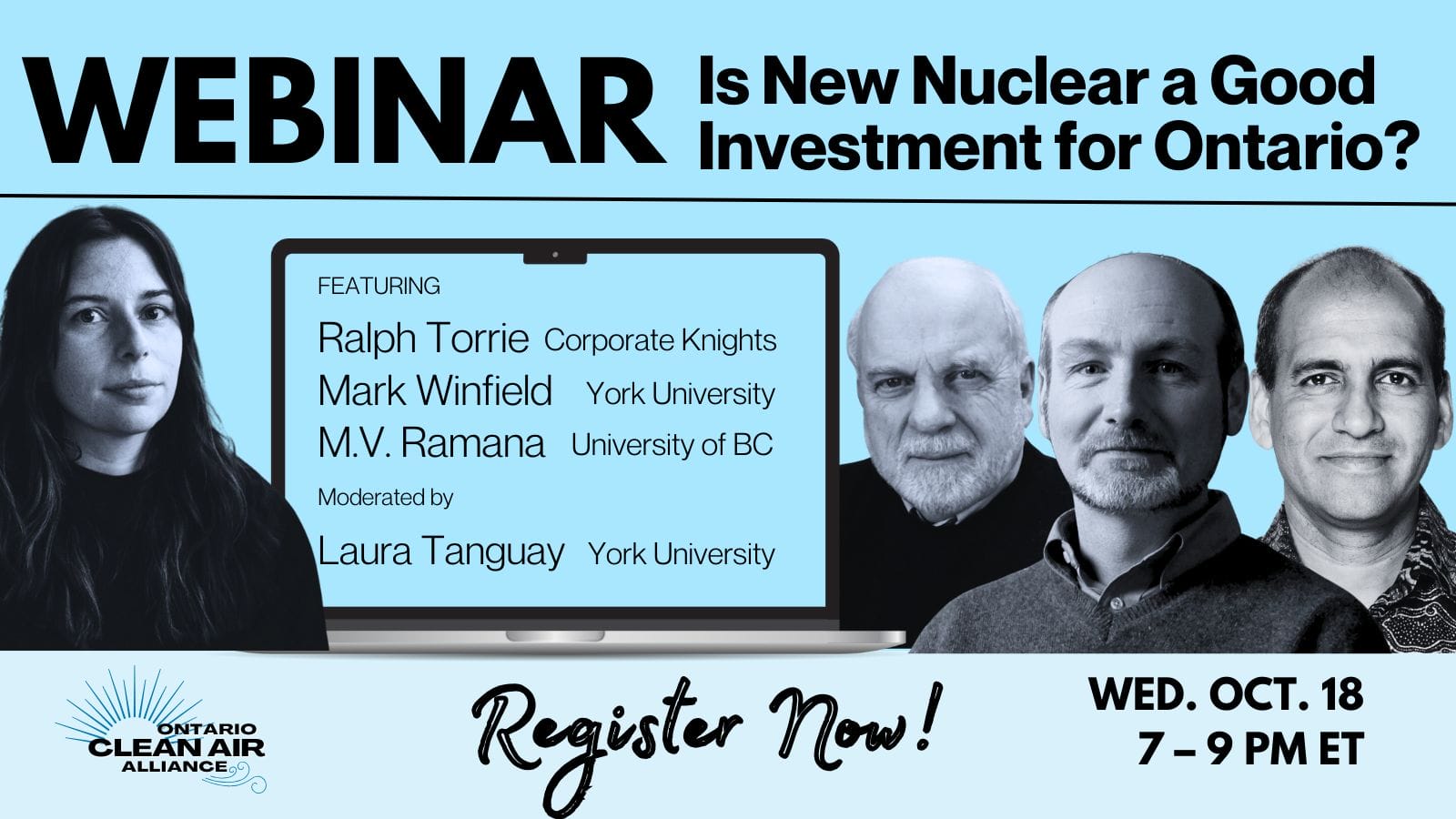
In its customary way, the Ford government has embarked on a nuclear spending spree with little consideration of costs or how its plans fit with the need to create a more sustainable energy future and reach critical climate goals.
Currently, the province is considering adding four new reactors at the Darlington Nuclear Station, up to four at the Bruce Nuclear Station (already the world’s largest nuclear station), and possibly rebuilding the 50-year-old Pickering Nuclear Station.
We’ve invited four experts on energy systems and policy to help us carefully examine whether nuclear power is compatible with a long-term sustainable energy future for Ontario.
Our upcoming webinar asks the question “Is New Nuclear a Good Investment for Ontario?” Click here to register. Our experts are:
Ralph Torrie is an internationally recognized analyst and communicator in the field of energy and environmental systems. Ralph is currently Director of Research at Corporate Knights where he recently produced an investment strategy for a green economic transition for Canada. His expertise in Ontario’s energy system dates to his involvement with the Royal Commission on Electric Power Planning in 1976. He authored the first soft energy path study for Ontario, and the first low-carbon pathway analysis for Canada.
M.V. Ramana is the Simons Chair in Disarmament, Global and Human Security and Professor at the School of Public Policy and Global Affairs, at the University of British Columbia in Vancouver, Canada. Ramana is a member of the International Panel on Fissile Materials, the Canadian Pugwash Group, the International Nuclear Risk Assessment Group, and the team that produces the annual World Nuclear Industry Status Report.
Mark Winfield is a Professor in the Faculty of Environmental and Urban Change at York University, and Co-Chair of the Faculty’s Sustainable Energy Initiative. Mark has published articles, book chapters and reports on a wide range of climate change, environment, and energy law and policy topics. He is the author of Blue-Green Province: The Environment and the Political Economy of Ontario (UBC Press). He is co-editing Sustainable Energy Transitions for Canada, which will be published by UBC Press in November.
With moderator Laura Tanguay, a Ph.D. candidate in the Faculty of Environmental and Urban Change at York University. Her research and dissertation engages with an environmental justice framework, and questions the discrepancy in consent mechanisms in nuclear waste sitings, with a case study on the near-surface disposal facility in Chalk River, Ontario.
With the month of September setting astounding new records for global temperatures, there has never been a better time to talk about the role of nuclear energy in addressing climate change and whether it can be a sustainable energy solution.
The webinar is free but we ask that you register to receive the zoom link.